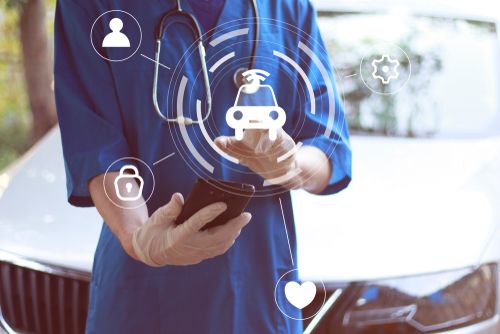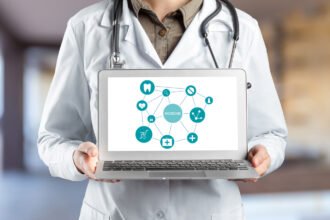The health care sector is characteristically fast-moving, and failing to know the exact people, equipment, or other assets associated with an organization could wreak havoc in life or death situations. As their name suggests, real-time location systems (RTLS) give updated information about the location of something or someone. Here’s a look at how this technology could reshape health care.
Better Tracking of Mobile Health Care Equipment
Wheelchairs and beds are two of the many examples of hospital equipment that could move throughout a facility during a given day. RTLS technology aids hospital workers in knowing where the pieces of equipment they need are at any time. In one case study, Georgia’s Piedmont Healthcare uses RTLS at five campuses across the state and primarily does so to keep track of equipment as it moves.
More specifically, the facility puts tags on all its mobile equipment and depends on the RTLS system to show how often particular items get used. The enterprise can then take that information into account when following equipment cleaning protocols or figuring out which buildings at a hospital have bed shortages.
Other hospitals that take similar approaches could find they spend less on rental costs or the expenses related to replacing lost equipment. After all, if hospitals don’t know where the equipment is that they need to treat patients, the two options are to buy more equipment or rent it from third-party providers.
Increasing Patient and Provider Safety
RTLS technology plays a prominent role in keeping patients and providers safe. Consider the example of using trackers for patients in a dementia care unit. Even the most dedicated caregivers can’t be everywhere at once, so there is always the possibility of one of the residents wandering off and getting into harm’s way.
An RTLS tracker can give accurate information about the missing person’s location, thereby reducing the staff members required to retrieve the person and bring them back to safety. Also, the information provided by the RTLS system could be instrumental in getting community members involved ? such as the owners of businesses surrounded the dementia facility ? so that they can pitch in to keep the person safe until caregivers reach them.
From a provider perspective, RTLS is a comparatively better fit in health care than in other business settings. Using RTLS trackers on employees at some businesses could bring labor lawsuits and require businesses to avail of legal resources to avoid potential challenges associated with a perceived lack of privacy.
Conversely, health care workers know that the medical sector at large has to go above and beyond what some other sectors do to protect personal data. And, it should be easy for providers to make the connection between an RTLS and enhanced well-being. For example, if a patient with severe mental illness becomes violent while alone with a nurse, that provider could press a panic button on an RTLS-equipped wearable to get help.
Looking to the future in this regard, people can expect fewer instances of patients getting lost for prolonged periods, as well as a lower likelihood of providers having difficulty getting the help they need in emergencies.
Improving Infection Control
The rise of antibiotic-resistant infections means that people in health care must be especially diligent in keeping infected patients isolated and following best practices that keep infections under control at hospitals and other health facilities. RTLS systems can help in this area, too. For example, hospitals might implement them to keep track of the equipment used or the areas accessed by patients with known or suspected dangerous infections.
Or, RTLS systems can complement a hospital’s infection control procedures by verifying that workers follow steps like proper hand-washing before and after working with all patients.
Health researchers are hard at work attempting to fight the spread advanced infections brought about in part by an increasing dependence on antibiotics. But, even the most high-tech solutions don’t replace the need to take basic steps to control and avoid infections.
Another way that RTLS systems aid in infection control is by stopping people from unknowingly entering the room of an infected person without wearing protective gear. If a hospital had infected patients with severe infections quarantined to particular floors, it might have housekeepers and other members of the maintenance staff wear RTLS equipment that gives an audible warning if those people attempt to go inside a room.
Making Indoor Wayfinding and Navigation More Straightforward
One of the benefits of using an integrated RTLS system is that it can improve throughput in a hospital by assisting visitors in navigating around a hospital’s grounds and allow health care workers to track the movement of patients and their attendees that progress through various areas of a health care facility for different treatments.
Many modern hospitals are so large that people get overwhelmed. If an RTLS system works via a visitor’s smartphone that has location tracking turned on, it could give that person the information, such as showing them a map that adjusts as their position changes.
Or, an RTLS system could help hospital administrators determine which areas of a facility get exceptionally crowded during particular times of the day and potentially make design changes to assist with traffic flow.
RTLS Benefits Health Care for All Involved
The examples explored here highlight why RTLS technology is crucial for facilitating progress in health care. As facilities and staff members investigate other ways to apply the technology to meet needs, other practical use cases will become apparent.






